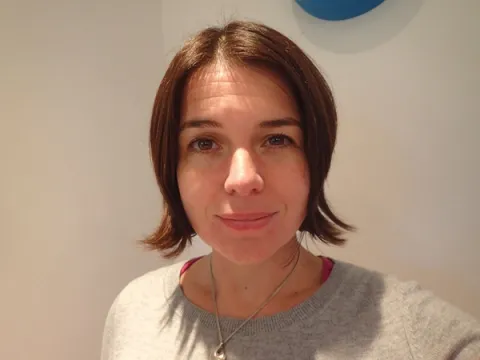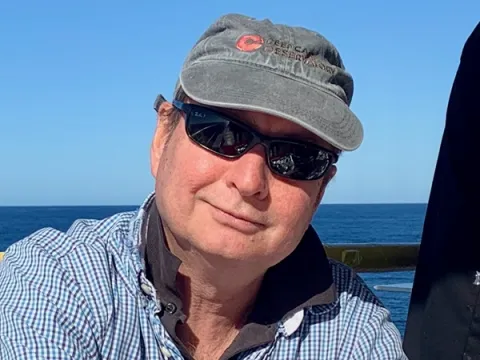About the project
This project aims to determine the role aging ocean crust has played in setting seawater chemistry and buffering atmospheric CO2 over Earth’s history. This will be accomplished by combining geochemistry and geochronology to evaluate the nature, timing and duration of hydrothermal inputs from the mid-ocean ridge flanks to the oceans.
Records of past seawater chemistry provide information crucial to understanding the evolution of Earth’s surface, ecology, and climate over millions of years. This is because processes such as mountain building, erosion, climate change, and biological evolution affect addition and removal of material to/from the oceans. To investigate signatures of past climate or tectonics from these records we must quantify the other ocean inputs and outputs, including chemical exchanges with the underlying ocean crust. Current models of seawater geochemical evolution focus on high temperature hydrothermal venting along mid-ocean ridges. This project, jointly funded by the Royal Society, aims to quantify lower temperature hydrothermal exchange across the vast ridge flanks.
Investigating ridge flank exchange requires scientific ocean drilling through thick sediments into the oceanic crust, which has predominantly recovered either young or very old crust. The student will work on the very first samples of middle-aged ocean crust, cored on the Southern Mid-Atlantic Ridge flank in 2022 by the International Ocean Discovery Program.
The timing and duration of ridge flank hydrothermal exchange will be determined using a range of geochemical and geochronological techniques. Knowledge of when these exchanges occur is critical to understanding past seawater chemistry because the long-term rearrangement of Earth’s tectonic plates has varied the age-area distribution of the seafloor. In addition to joining the international South Atlantic Transect science team, the student will benefit from two 3-month placements with Prof Anthony Koppers (a world-leader in geochronology) in Oregon (USA), to develop new geochronology techniques for dating hydrothermal minerals. "
Supervisory team
The supervisory team includes supervisors from several organisations. Please contact the Lead Supervisor for more information about the team.
Training
The INSPIRE DTP programme provides comprehensive personal and professional development training alongside extensive opportunities for students to expand their multi-disciplinary outlook through interactions with a wide network of academic, research and industrial/policy partners. The student will be registered at the University of Southampton and hosted at the National Oceanography Centre Southampton, in the School of Ocean and Earth Sciences. Specific training will include:
- Training in state-of-the-art geochemical techniques, including trace element analysis by Inductively Coupled Plasma Mass Spectrometry and strontium isotope analyses via Thermal Ionization Mass Spectrometry
- Two 3-month placements at Oregon State University (USA) to be trained in 40Ar/39Ar dating using vacuum encapsulation
- Attending the European Petrophysics Consortium/UK-IODP Petrophysics Summer School (University of Leicester), earning a Techlog Fundamentals training certificate
- Membership of a world-class team of scientific ocean drilling (IODP) scientists, providing unique opportunities to learn from, be supported by, and develop collaborations within a diverse international research group

